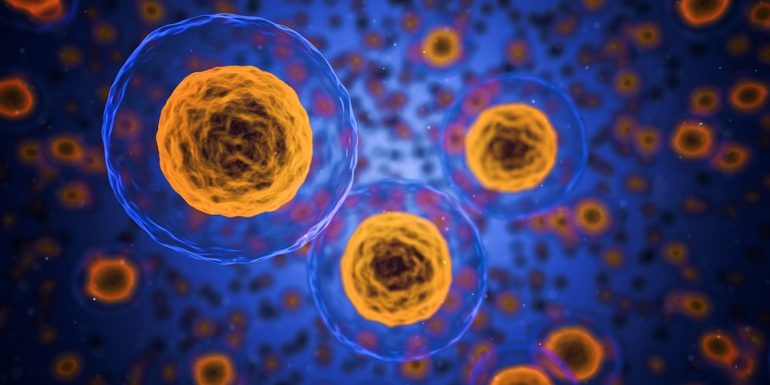A team of Israeli scientists
According to 2013-2015 data from the National Cancer Institute, approximately 38.4 percent of men and women will be diagnosed with cancer within their lifetime. For the U.S., that means that approximately 1 in 3 people will be diagnosed with cancer (American Cancer Society).
The Kiryat Weizmann Institute of Science, a biopharmaceutical company located in Rehovot, Israel, has developed a new treatment for cancer which may just be the answer.
Accelerated Evolution Biotechnologies Ltd. (AEBi), founded in 2000 by Dan Aridor, is known for their development of a platform called SoAP, which uses combinatorial biology to create new and superior lead compounds through the creation of therapeutic peptides. This technology involves introducing the DNA coding for a protein, commonly an antibody, into a bacteriophage (a virus that infects bacteria) and then using the protein displayed on the phage surface to screen the possible interactions with other proteins, DNA sequences, and small molecules.
Under the leadership of CEO Ilan Morad, AEBi’s researchers employ a similar technique using peptides (compounds of two or more amino acids linked in a chain) which are easier to produce and manipulate due their their cost-efficiency and size. This has allowed them to use an artificial, high-complexity pool to search for binders or functional molecules. The team is very excited about this technology and what it could mean for the development of cancer treatments in the future.
Morad and Avidor told the Jerusalem Post that this drug is on the scale of a cancer antibiotic.
According to Morad, many anticancer treatments today are cytotoxic and aim at fast-growing cells. Often, the cancer stem cells do not reproduce at a quick enough rate and can be missed by the cancer treatment. This causes them to reproduce again when the cancer treatment is over.
For that reason, Morad and Dr. Hanan Itzkhaki worked to find a treatment that would target the root of the problem– the mutations that exist within the cancerous stem cells.
The result is a potential cancer-busting drug nicknamed MuTaTo (multi-target toxin) which employs disruption technology. This drug targets the overexpressed cancer cells which exist inside the cancer stem cells, eradicating the chance of them resurrecting after the treatment has concluded.
Unlike most pharmaceuticals currently on the market, MuTaTo uses a strong peptide toxin to target and kill specific cancer cells and a combination of several cancer-targeting peptides for each cancer cell. The outcome is a treatment that Morad says is not affected by mutations, which can often make cancer fighting agents neglect the targeted receptors.
One of the benefits of having a multi-target drug is that it could mean a reduction in the side effects of most, often caused by treatments interacting with non-cancerous targets. Morad explained that the combination of specific cancer targeting peptides on one treatment would increase the precision in targeting only the cancerous cells.
The company has just concluded its first trials on mice using the new super drug.They found that it inhibited human cancer cell growth and had no adverse effects on healthy mice cells. AEBi is now entering the preliminary round of clinical trials which could potentially see completion in the next few years and, if successful, could mean the early release of the treatment for select cases.
Aridor has expressed that “Our results are consistent and repeatable.”

